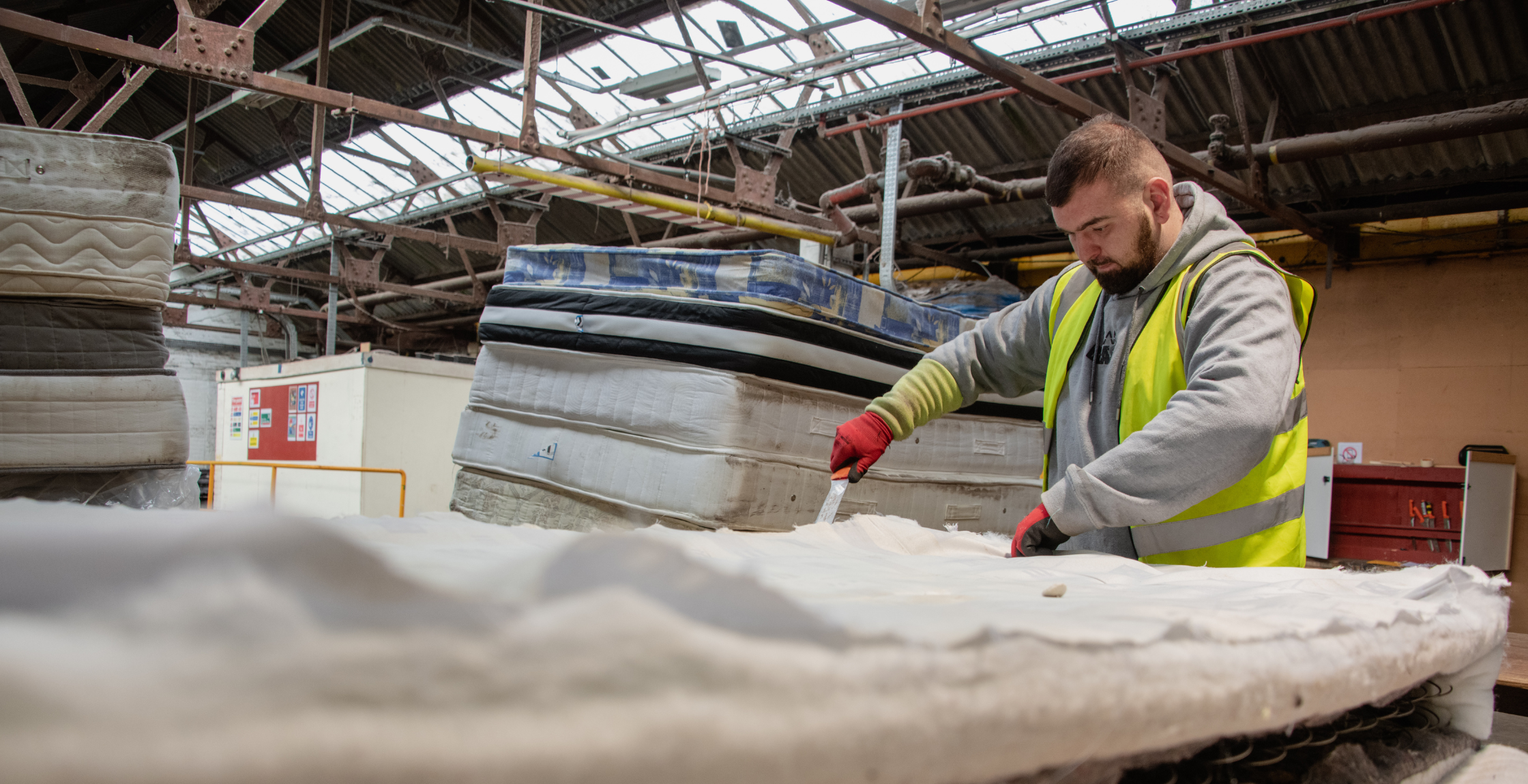Home Mattress Recycling
Need to recycle your old mattress?
Our sister company, The Mattress Recycling People, can take care of it!

Earth Day (22nd April) is an environmental movement which encourages people and organisations from around the world to come together to discuss how to better protect and preserve our planet through action and investment. To highlight this key time, our founder and CEO, Nick Oettinger shares his thoughts on how collaboration can hold the key to a successful circular economy in the UK.
To significantly reduce the impacts of climate change and support a true circular economy within the UK it requires the collaboration, expertise and practical support of a range of industries. One company alone can’t stop plastic waste but if manufacturers, retailers, regulatory bodies and waste collectors work together, they can introduce new materials, new legislation and new ways of disposing waste to have a greater impact on the problems our environment faces both locally and across the country.
If businesses and regulatory bodies from each industry worked together to design new legislation this would also create regulations that are fit for purpose and quickly adopted by businesses within the sector.
By implementing a collaborative approach it ensures a streamlined strategy is developed that works across the board for each sector. Businesses, charities and governing bodies can then freely share resources, advice and expertise and even funds to help develop circular economy solutions to benefit every involved organisation.
A factor that supports progression in any industry is research and development of new innovative solutions. Key to driving change and implementing a circular economy is the development of circular solutions such as new technologies, sustainably sourced materials and alternative waste disposal.
Research and development takes time, expertise and funding all of which many smaller companies don’t currently have access to. If regulatory bodies and large industry associations dedicated specialist teams to exciting new research to help develop further solutions, companies could adopt these solutions in the future.
Ford, Johnson & Johnson and Disney are all global businesses which invest millions into sustainable research and development. From Nike introducing new biodegradable materials for their latest shoe collections to Starbucks implementing low-flow water valves to be more efficient and reduce wastage, there are large global companies taking the lead on sustainable innovation.
At TFR Group, we invest in solutions that streamlines waste management. In 2016, we created a world-first automated pocket spring recycling machine. The machine allows a mattress to be fully deconstructed into its 19 component parts, taking the process time from half a day to just two a half minutes.
We’re also conscious of the carbon footprint of transporting mattresses to be recycled, which is why we launched our Mattress Compression System for Transportation in 2022. The system compresses mattresses to increase trailer capacity by up to 572% per trip, meaning fewer trucks on the road and more mattresses diverted from landfill.
In the UK there are around 700,000 new start-ups created each year, however an estimated 60% of those fail within the first three years. These figures are alarming for ‘green start-ups’ and the impact this can have on the UK’s sustainability long term.
While the government does offer support to fledgling businesses nationwide, there could be further help put in place to support and develop environmentally focused businesses especially in the first one to five years. In the early stages of launching a green business to market there are significant challenges including building internal infrastructures while reaching an audience base which is still in the early stages of adopting sustainable practices and beliefs. By offering that extra bit of support in terms of investment, resources and advice, the government can help green start-ups through the critical stages or their business journey.
The UK government has a range of net-zero targets which they aim to achieve by 2050, which have been recommended by the Climate Change Committee.
The change that needs to be undertaken will be transformative, from changing our country’s infrastructure and energy sources to influencing consumer behaviour to view the environment in a completely new way. For this to be successful it requires strong leadership from government and heads of industry, a clear circular economy strategy to follow with a long term commitment to change.
Discover how our recycling service is helping a range of businesses and brands to divert their waste away from landfill. Contact us today.
"*" indicates required fields
Need to recycle your old mattress?
Our sister company, The Mattress Recycling People, can take care of it!
X